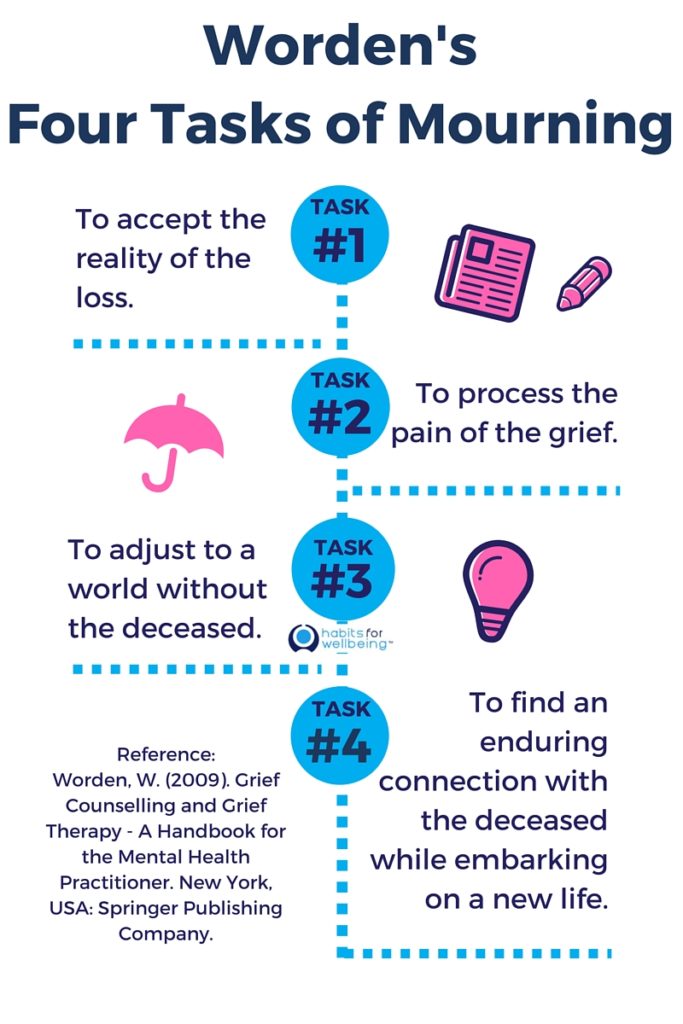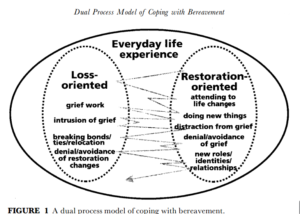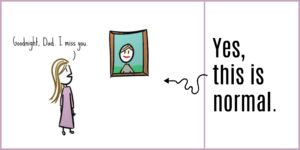Grief – what is it and how do we experience it?
Grief is defined as the reaction to loss. The loss can be the result of death, loss of a relationship, a job, or anything other type of loss. It can manifest in diverse ways: physically, emotionally, socially and behaviourally. Physically, we may notice sleep disturbances, changes in appetite, or even shortness of breath. Emotionally we may feel vulnerable, lonely or abandoned. We may also notice that we tend to avoid social situations. Our behaviours may seem out of character: we’re forgetful and may find ourselves searching for the deceased.
Types of Grief
Several types of grief have been identified, including anticipatory grief, complicated grief, cumulative grief, delayed grief, and disenfranchised grief. We’ll share information about these in another blog post.

William Worden’s Four Tasks of Mourning.
How do we grieve?
Perhaps the most asked questions, are how do we grieve and am I doing it right? Most are familiar with the work of Dr. Elisabeth Kubler-Ross and her five stages. However, the stages were identified in relation to those individuals who were dying, not those who were grieving. When we suggest that people grieve in stages, we are creating an impossible standard for people to follow. We do not grieve in stages – grief is non-linear! That’s not to say that we might not experience some of the reactions, such as anger and depression, but to assume that one follows an orderly path towards resolving grief is inaccurate. As one can attest, grief can often feel anything but organized.

Stroebe and Schut’s dual process model.
There are many researchers and scholars in the field of thanatology that have put forth theories and concepts about how we grieve. Each has its own merits and can provide support or a way in which to understand how we might journey forward. What’s important is that we do what feels right for us, as long as it doesn’t contribute to self-harm.

Thanks to our colleagues at What’s Your Grief for this image. Often times we think some behaviours aren’t normal, when in fact they provide a way to cope.
How long does it take?
How many of us have been told by friends or other family, that it’s time to move on, that we should be finished our grief work? It’s important to remember that each person’s grief experience is unique to them and dependent on any number of factors, including our relationship with the deceased. We need to be gentle with ourselves and reach out for support when we need it, either by sharing our experiences with a trusted, compassionate friend, attending a support group or meeting with a certified grief counsellor.
Please follow and like us:


